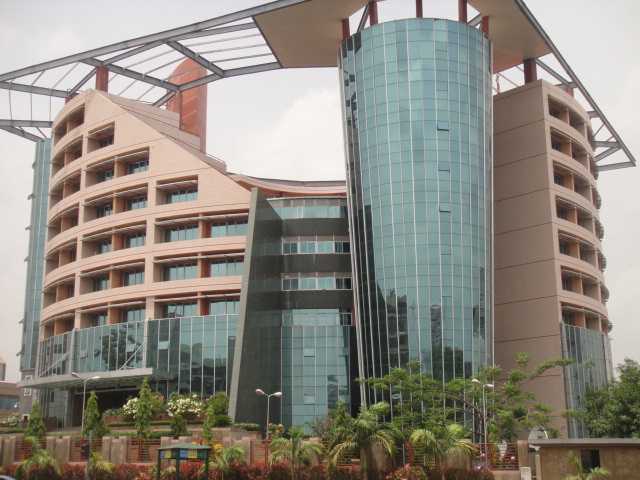The Nigerian Communications Commission (NCC) is in the news for the wrong reason. As the regulator of Nigeria’s fast-growing telecommunications sector, it is expected to provide a level-playing field to all players in the industry so that the consumer can tap into the diversity of the market for the best bargain.
However, the recent action of the regulatory agency appears to be lending credence to the Biblical statement: for he that hath, to him shall be given: and he that hath not, from him shall be taken away even that which he hath.
Following the growth of the sector in leaps and bound, NCC embarked on a process a few years ago to classify the market. In that exercise, which commenced in September 2012, the commission consulted widely through various stakeholder engagements as well as an industry-wide survey to determine the level of competition in the relevant markets of the telecommunications industry. Those steps were in line with NCC’s regulatory functions as provided in the National Communications Act No 19 of 2003 and the Consumer Code of Practice Regulations 2007.
The strategy resulted in the NCC issuing a regulation titled “Determination of Dominance in Selected Communications Markets in Nigeria (DDSCMN)” on April 25, 2013. With DDSCMN, NCC declared MTN Nigeria a Dominant Operator in the Retail Mobile Voice Market segment of the telecommunication industry and directed the company to immediately collapse the differential between the on-net and off-net retail voice tariffs.
All the industry operators lived peaceful with the policy, aggressively penetrating the various segments of the market until NCC chose to reverse itself. In the build-up to the recent general elections, NCC overturned the MTN Nigeria concessions, contrary to its own directives and regulation on dominance. Fundamentally, that volte-face was without consultation with the industry stakeholders as provided by the governing laws of the commission. Without undertaking a public review of the market in consultation with industry stakeholders, as is required under the provisions of the Communications Act, NCC granted MTN Nigeria a 30 per cent concession on off-net and on-net retail mobile voice tariffs.
Stakeholders in the sector are worried. NCC’s failure to follow due process has raised concerns since the Commission has an obligation to promote fair competition and prevent the misuse of market power or anti-competitive practices by any licensee. Investors who desire regulatory certainty to guide their decisions will be disturbed where the industry regulator undertakes far reaching decisions without transparently seeking the input of stakeholders. Industry watchers are intrigued that NCC could renege on an earlier arrangement and unwittingly favour an operator at the expense of the others.
Service providers have been urging NCC to review the 30 per cent differential it recently granted to MTN Nigeria for off-net and on-net retail mobile voice tariffs as it is a threat to their business. They are of the opinion that the ongoing MTN’s “Family and Friends” promo is in violation of NCC’s regulation since it allegedly aided MTN to leverage on its size to restrict outgoing traffic to smaller operators by pricing on-net tariffs lower so as to make off-net calls unattractive. Concerned watchers of the telecommunications industry believe the NCC approval is in contravention of the obligation imposed on MTN Nigeria under the DDSCMN to collapse its retail voice on-net and off-net tariffs and ensure both tariffs are at par.
It remains a puzzle why the regulator would change the rule of the game midway without informing stakeholders of its intention and explain why it should favour a player at the detriment of others.
The Nigerian telecommunications market is segmented into voice, data, upstream and downstream services. The voice market and the data market have mobile and fixed sub-segments. The sub-segments of the upstream market are spectrum and frequency services, tower services, network services, wholesale broadband/internet services and wholesale leased lines and transmission capacity services while handsets/devices and applications/contents make up the sub-segments of the downstream market.
NCC’s policy reversal on DDSCMN further strengthens the argument that the sector can only become more robust and competitive if the commission implements policies and regulations without fair or favour. The current situation where most of the telecommunication sector revenues and profits go to one operator while others struggle to survive is a huge drawback largely responsible for the broadband investment deficit and resultant low broadband penetration in Nigeria.
For Nigeria to develop the requisite broadband needed for digital economy, NCC and the supervising Ministry of Communications Technology ought to put in place policies to address challenges affecting broadband development in Nigeria. It is indeed sad that, in spite of its huge resources and market potential, the country continued to underperform in the area of broadband development in comparison to its peers. While Nigeria’s mobile broadband penetration stands at 10.1 per cent, the average for peer countries in Africa is 30 per cent. Again, peer countries have an average Smartphone penetration of 26 per cent, as against Nigeria’s dismal averages 12 per cent.
In order to enhance the growth of the Nigerian telecommunications industry and ensure that the consumer has a worthwhile spend, NCC should come up with regulations to enable unprofitable operators compete more favourably in order to attract a greater share of the currently lopsided value in the industry.
Nigeria should learn from other markets where dominant players are restricted in the interest of the industry and the country.
•Eze is a Lagos-based consumer rights advocate.

